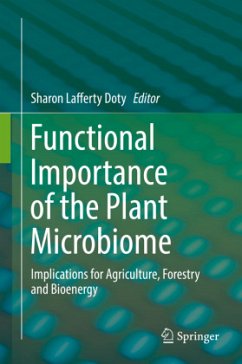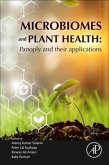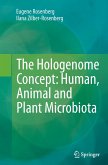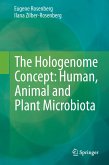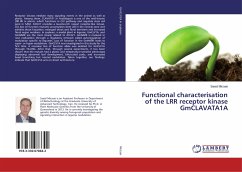This book addresses all the major mechanisms by which endophytes are thought to impact plant growth and health. A unique aspect of this publication is that it is multidisciplinary, covering plant microbiology, plant physiology, fungal and bacterial endophytes, plant biochemistry, and genomics.
Just as research on the mammalian microbiome has demonstrated its importance for overall health of the host, the plant microbiota is essential for plant health in natural environments. Endophytes, the microorganisms living fully within plants, can provide a multitude of benefits to the host including N-fixation, P solubilization, increased photosynthetic efficiency and water use efficiency, stress tolerance, pathogen resistance, and overall increased growth and health. A variety of culturable endophytes have been isolated and shown to be mutualistic symbionts with a broad range of plant species. These studies point to the functional importance of the microbiota of plantsand suggest the potential for tailoring plant microbiota for improved vigor and yields with reduced inputs. This review covers the major benefits of microbial endophytes to plants and discusses the implications of using symbiosis as an alternative to chemical inputs for agriculture, forestry, and bioenergy.
Just as research on the mammalian microbiome has demonstrated its importance for overall health of the host, the plant microbiota is essential for plant health in natural environments. Endophytes, the microorganisms living fully within plants, can provide a multitude of benefits to the host including N-fixation, P solubilization, increased photosynthetic efficiency and water use efficiency, stress tolerance, pathogen resistance, and overall increased growth and health. A variety of culturable endophytes have been isolated and shown to be mutualistic symbionts with a broad range of plant species. These studies point to the functional importance of the microbiota of plantsand suggest the potential for tailoring plant microbiota for improved vigor and yields with reduced inputs. This review covers the major benefits of microbial endophytes to plants and discusses the implications of using symbiosis as an alternative to chemical inputs for agriculture, forestry, and bioenergy.

